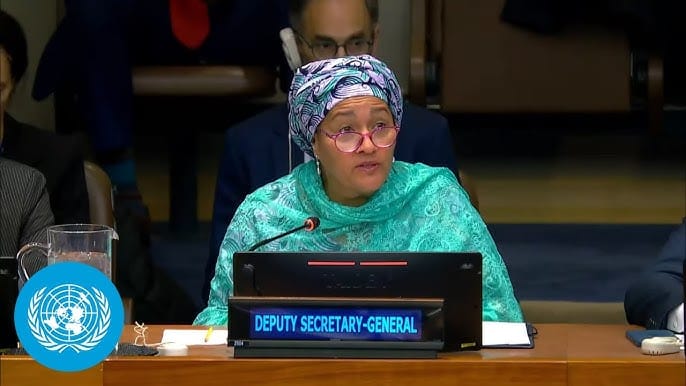Deputy Secretary-General Urges Action to ‘Break Cycle of Debt’

UN Deputy Secretary-General Amina Mohammed addressed a critical gathering in Sevilla, Spain, today, focusing on the urgent need for debt sustainability in developing countries. She highlighted the significant challenges these nations face, including a looming debt crisis exacerbated by global economic slowdowns and climate-related shocks. With over two-thirds of low-income countries grappling with debt distress, Mohammed emphasized the necessity for bold investments to secure a sustainable future. She called for collective action to address the crisis and proposed a framework for moving forward.
Challenges Facing Developing Nations
In her remarks, Amina Mohammed outlined the formidable obstacles that developing countries encounter a decade after the adoption of the Sustainable Development Goals (SDGs). These nations are not only dealing with slowing global growth and the potential for trade wars but are also facing the repercussions of climate change and ongoing conflicts. However, the most pressing issue is the escalating debt crisis. Mohammed pointed out that borrowing is essential for development, allowing governments to invest in vital areas such as health, education, and infrastructure. Unfortunately, the current borrowing landscape is failing to support these needs, with 3.4 billion people living in countries that allocate more funds to interest payments than to essential services.
The debt crisis remains largely invisible to advanced economies, which do not feel its immediate effects. This disconnect has led to a reluctance among global policymakers to confront the reality of the crisis. Many seem to hold onto the hope that the situation will improve on its own if interest rates decline. However, Mohammed noted that recent initiatives are beginning to change this narrative, as various programs aimed at addressing the debt crisis gain traction.
Recent Initiatives and Global Response
Amina Mohammed expressed optimism about the recent initiatives launched to tackle the debt crisis. Programs such as the African Leaders Debt Relief Initiative and the Jubilee Commission are gaining momentum, making it increasingly difficult for the global community to ignore the crisis. The Sevilla Conference has played a pivotal role in bringing attention to the shortcomings of the current debt architecture and its detrimental effects on developing nations. The ongoing work of the South African Group of 20 (G20) is also contributing to this growing awareness.
These efforts have not only highlighted the urgent need for reform but have also identified actionable steps that can help alleviate the debt burden on developing countries. Mohammed emphasized that now is the time for policymakers to take decisive action to ensure that debt serves as a catalyst for development rather than a hindrance.
Proposed Actions for Moving Forward
To effectively address the debt crisis, Amina Mohammed proposed three key actions that the global community must undertake. First, she called for a consolidation of messages and recommendations from various analyses to create a unified approach. This includes integrating insights from the Sevilla outcome document into the G20’s agenda and the upcoming COP30 discussions.
Second, she urged all stakeholders to play their part in promoting solutions such as debt swaps and pauses, citing Spain’s exemplary leadership in this area. The UN is prepared to support member states in establishing a platform for borrowers to share experiences and strengthen their collective voice.
Lastly, Mohammed stressed the importance of expanding the coalition working towards debt sustainability. This involves garnering support from influential members of international financial institutions and mobilizing civil society, as envisioned by the Jubilee campaign. By implementing these strategies, she believes that the cycle of debt can be broken, paving the way for a new era of sustainable development for all nations.
Observer Voice is the one stop site for National, International news, Sports, Editor’s Choice, Art/culture contents, Quotes and much more. We also cover historical contents. Historical contents includes World History, Indian History, and what happened today. The website also covers Entertainment across the India and World.

